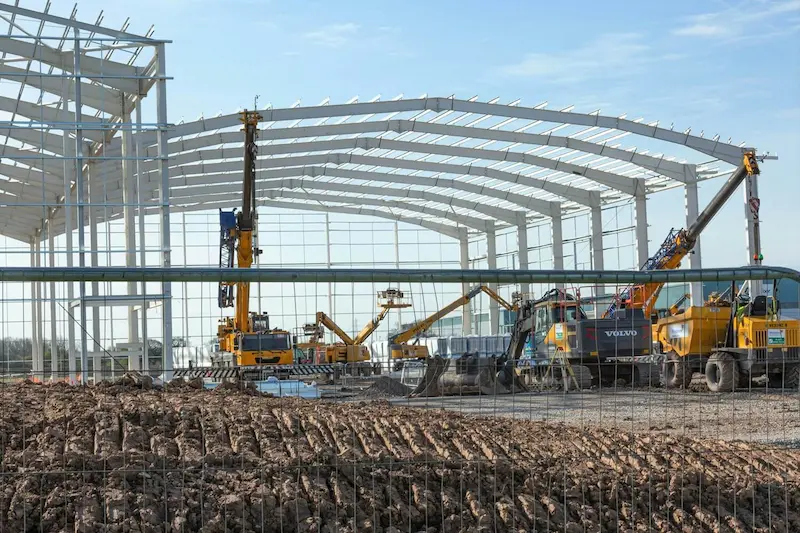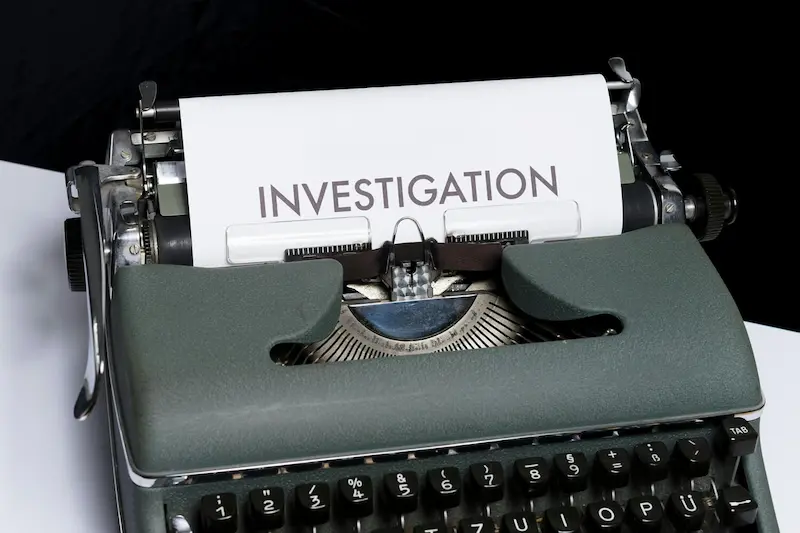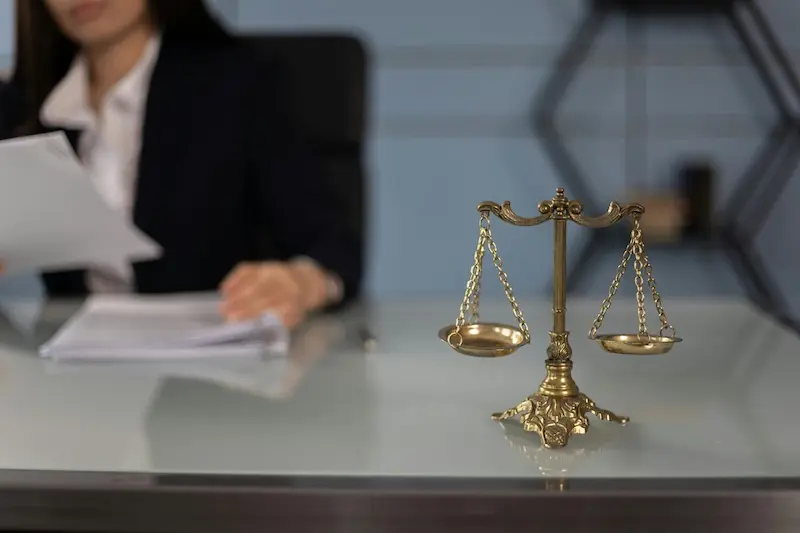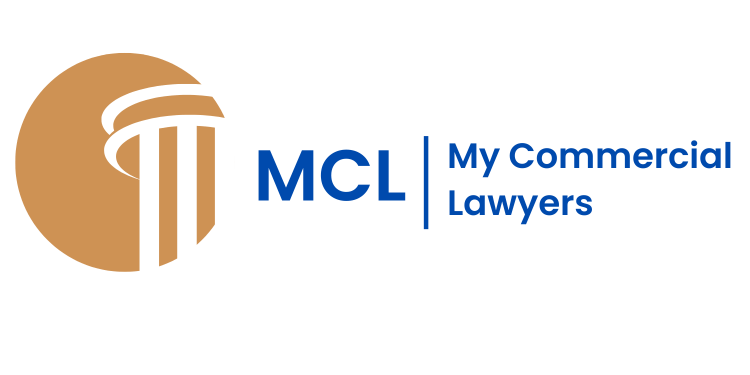What Are My Rights at an Interview Under Caution (PACE)?
Receiving an invitation to attend an interview under caution is a serious matter for any business. Whether conducted by the Health and Safety Executive, Environment Agency, or another regulatory body, these formal interviews demand immediate attention. The consequences can include unlimited fines, criminal charges, and lasting reputational damage.
Understanding your rights during these interviews is essential for protecting your business and its directors. Our experienced team of solicitors and barristers specialises in regulatory crime defence. Don’t face this process alone. Contact us today for the expert legal protection your business needs.

Is a Compliance Interview Under Caution?
Interviews conducted by compliance and regulatory bodies are formal interviews under caution, carrying the same legal weight and potential consequences as police interviews.
An Interview Under Caution (IUC), also known as a PACE interview, is a formal questioning of suspects during a criminal investigation. These interviews are governed by the Police and Criminal Evidence Act 1984 (PACE), which establishes the rights of suspects, the duties of interviewers, and rules regarding evidence admissibility.
Numerous regulatory bodies possess the authority to conduct criminal investigations and interview suspects under caution. Businesses may encounter interviews conducted by:
- Serious Fraud Office (SFO)
- HM Revenue and Customs (HMRC)
- Financial Conduct Authority (FCA)
- Trading Standards
- Care Quality Commission (CQC)
- Health and Safety Executive (HSE)
- Environment Agency
- Local Authorities
These bodies conduct interviews when they have grounds to believe that an individual or company has breached regulatory compliance or committed a criminal offence. Investigators must adhere to PACE Codes of Practice, ensuring the same legal protections apply whether you are being interviewed by police or a regulatory authority.

What Happens at an Interview Under Caution?
When facing a regulatory investigation, knowing what to expect is essential. The process begins with the formal caution, which protects your rights whilst setting clear expectations:
- You are not obligated to answer questions or provide information
- However, staying silent about facts you later use in your defence may be viewed negatively by the court
- The entire interview is recorded (audio or video) and can be presented as evidence
Regulatory interviews are typically conducted voluntarily, as bodies like the HSE and Environment Agency cannot arrest individuals directly. However, if you refuse to attend or leave an interview without cooperation, they may escalate the matter to the police, who do have arrest powers.
An invitation to a voluntary interview should always be taken seriously as it indicates suspicion of an offence. Investigators have grounds to believe you or your company may have breached regulatory compliance or committed a criminal offence. The voluntary nature does not diminish the seriousness. Outcomes can still include fines, cautions, or criminal charges.
Pre-Interview Process
Before questioning begins, the investigating officer must provide your solicitor with disclosure concerning the case information and evidence. Your legal representative then advises whether you should answer questions, submit a prepared statement, or exercise your right to silence.

When Companies Are Interviewed
When a company is suspected of a criminal offence, it must nominate a director or senior manager to attend the interview as its representative. Where a company has a single director, that individual may represent the business during its interview. However, if they are also personally suspected of wrongdoing, investigators must conduct a distinct interview addressing their individual capacity.
Why Legal Representation Is Essential
It is strongly advised never to attend an interview under caution without legal representation. This is critical for businesses facing regulatory investigations, where consequences extend beyond individuals to affect entire companies.
If both the company and individual directors or managers are facing allegations, it is vital to ensure all parties clearly understand the capacity in which questions are being asked and answered. This avoids confusion regarding the admissibility of evidence if the matter proceeds to court.
Regardless of arrest status, you have the right to legal representation. Questioning must stop immediately upon requesting a solicitor.
Specialist solicitors provide essential support by:
- Reviewing disclosure and evidence
- Advising on strategy (answering questions, prepared statements, or remaining silent)
- Challenging inappropriate questioning
- Protecting against inadvertent self-incrimination
- Negotiating potential out-of-court disposals
The advantage of having a legal team that understands both PACE duties and your specific business and industry cannot be overstated. An experienced criminal defence team specialising in corporate crime helps management prepare consistent and persuasive interview answers.
Proper legal advice and a proactive approach can be the difference between your company being prosecuted and no further action being taken. The stakes are particularly high for businesses, with potentially severe reputational and financial consequences, including unlimited fines in health and safety prosecutions. These consequences particularly impact Small and Medium-sized Enterprises (SMEs).

Potential Outcomes After the Interview
Following an interview under caution, several outcomes are possible:
- No Further Action (NFA) – The investigating body determines no further action is required
- Simple Caution – An out-of-court disposal if they have enough evidence and you admit guilt
- Conditional Caution – Applied if you admit guilt and agree to comply with specified conditions
- Release on Bail – You must return on a set date for further inquiries
- Release Under Investigation (RUI) – Similar to bail but without a set return date
- Criminal Charge – You are charged with a criminal offence
When interviews are conducted by regulatory bodies such as the HSE or Environment Agency, outcomes may include the investigation being dropped, formal cautions, fines, or criminal proceedings.
Health and safety prosecutions carry the possibility of unlimited fines. Beyond financial penalties, businesses face significant reputational damage affecting client relationships and market standing. For SMEs especially, these consequences can threaten business survival.
Does an Interview Under Caution Show on DBS?
The interview itself does not automatically create a criminal record or appear on a Disclosure and Barring Service (DBS) check. The consequence depends entirely on the outcome and the type of check conducted.
- If the investigation results in No Further Action (NFA): The record remains on the Police National Computer (PNC) but is not a criminal conviction. It will not appear on a standard DBS check. However, the details could be disclosed on an enhanced DBS check.
- If you accept a Simple Caution: This is considered a “spent” conviction but may still be disclosed in enhanced DBS checks.
- If you accept a Conditional Caution: These appear in both basic and enhanced DBS checks, usually only for occupations exempt from the Rehabilitation of Offenders Act, such as working with children.
- If the interview leads to a formal charge and conviction: The details are recorded on your criminal record and will appear on DBS checks accordingly.
Many regulated professions require disclosure of any police interactions, which could affect licensing and employment prospects. Previous interviews under caution may be reviewed in future investigations, and any admissions or inconsistencies can be used as evidence if cases progress to court.

The Importance of Expert Legal Advice
The difference between prosecution and no further action often comes down to proper legal advice and strategic engagement with investigators. The consequences of facing an interview under caution without proper legal representation can be severe and long-lasting for your business.
Our experienced solicitors and barristers specialise in regulatory crime defence and work proactively to protect businesses from prosecution. Talk to us to ensure you have the expert advice and strategic support necessary to safeguard your company’s future.
